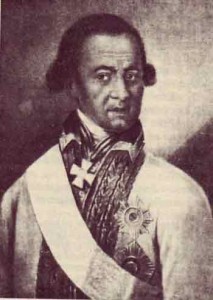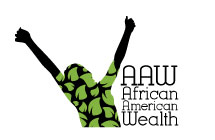Africa Is Global

Hannibal, Abram Petrovich
Because of Gorbachev’s politics of Perestroika, Soviet society recognized for the first time the existence of some social and ethnic groups which had been left unnoticed. Children of African fathers and Russian mothers is one of such groups.
In fact, at that time, it was not a “group”. There was no tightly knit African-Soviet community in the former Soviet Union. Mothers of “colored” children were most often alone in their needs and concerns, and these children did not know very much about their likes. In the fall of 1990, the first Initiative Group of African-Soviets was created in Leningrad (now St. Petersburg).
The roots of this situation are in the late 1950s and early 1960s when the Soviet Union offered university scholarships to Africans. After the independence of the majority of African countries, between the 1950’s and 1990’s, thousands of young Africans (mostly men) from these countries went to the Soviet Union for their studies. These students spent five to ten years in what was the Soviet Union. Many of them married Soviet women.
Many Soviet women went with their husbands to live in Africa. Often enough, these marriages were clashes of culture, languages and customs. In some cases, polygamy was an unfavorable factor in these marriages, and it was not rare for some of these Soviet wives to return home to the USSR. The result was single mothers with their children of a different skin color, coping with racial prejudices from neighbors and relatives.
Racial prejudices sometimes made it difficult for these single mothers of “colored” children to remarry. Some of these “colored” children were abandoned by their mothers and became orphans. These single parent families were among the victims of economic hardship and Russian nationalist organizations of the fascist trend who claimed that these families were responsible for “spoiling of Russian blood”.
On the other hand, Perestroika let the African-Soviets speak up. They tried to speak up at the 1990 Human Rights Conference in Leningrad, but they were not given the floor. However, soon after this event, a popular Leningrad weekly, Chas Pik, published an interview with a member of the Initiative Group of African-Soviets (a civil rights group with an agenda to create a positive social niche for African-Soviets), and this publication started African-Soviets networking.
With the collapse of the Soviet Union in 1991, racism against African-Soviets (now represented in the different countries of the former Soviet Union) intensified. Due to sports teams’ recruitments, interaction between African-Americans and African-Brazilians also increased after the collapse of the Soviet-Union. This engagement lead to sharing of African diaspora experiences.
Today, African-Russians make up 1% of the 143 million Russian population. Poet Alexander Pushkin is one of the noted African-Russians. African-Russians still face racism, economic hardships, health concerns similar to those of African-Americans and other African diaspora. Hypertension, now considered a global health problem, is a major health concern in all of Russia. Effects of alcoholism is also a significant health concern in Russia. Next “Africa Is Global” focus: African-Japanese.
Tell AAW your stories
It is uncertain where in Africa Hannibal was born in the 1690’s (in either what is now Cameroon or Ethiopia). At 8 years of age, he was taken by Turkish slave traders to Peter the Great. A general in the Russian military, he is noted as being one the most significant engineers in Russian history. He is the great-grandfather of poet, Alexander Pushkin.



